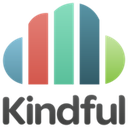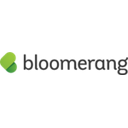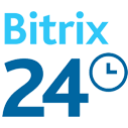CRM for nonprofits: Benefits, Features, and Budgeting
Nonprofit organizations rely heavily on the support of donors, volunteers, and other stakeholders to achieve their mission. To build and maintain these relationships, nonprofits need a robust customer relationship management (CRM) system.
Explore the benefits of using a nonprofit CRM system and understand how it can help your organization improve operations, engage with its community, and achieve its mission more effectively.
What is nonprofit CRM software?
Nonprofit CRM (Customer Relationship Management) software is exclusively designed for the needs of nonprofit organizations. It allows them to manage their relationships with volunteers, members, donors, volunteers, and other key stakeholders.
A nonprofit CRM is great if you are looking to boost your fundraising efficiency, understand donor behavior, and streamline all your internal and external communications.
What are the benefits of using a nonprofit CRM?
There are countless reasons why you should consider using nonprofit CRM for your organization.
Using nonprofit CRM software can help you streamline and automate key tasks in managing donor relationships, leading to increased efficiency, better communication, and improved fundraising results.
Some of the main benefits of using a nonprofit CRM include, but are not limited to:
- Donor management: Track giving history and monitor donor engagement.
- Fundraising management: Monitor your fundraising campaigns, track pledges and donations, and run reports to analyze campaign performance.
- Volunteer management: Track hours, assign tasks, and communicate with your volunteers through the CRM platform.
- Marketing automation: Send targeted messages to your donors and volunteers based on their specific interests and behaviors.
- Improved communication: Send personalized messages to inform your community about current programming, activities, and achievements.
- Increased efficiency: Streamline your workflow.
Choosing a nonprofit CRM software can help you build and maintain strong relationships with your donors and volunteers, streamline your operations, and increase your fundraising effectiveness.
It’s the investment in software that will ensure your nonprofit can become more efficient and effective on a mission to honor its value proposition.
What are the main features of a nonprofit CRM?
Your nonprofit CRM includes a comprehensive toolkit of features, each designed to help your organization manage your donor relationships and better understand the performance of your fundraising efforts. Some of the main features of a nonprofit CRM include the following:
Donor management
A nonprofit CRM should include robust donor management features, such as storing donor contact information, tracking donations and contributions, and monitoring donor engagement with your organization.
Fundraising management
A nonprofit CRM helps you manage your fundraising campaigns, including setting goals, tracking progress, and generating reports on your fundraising performance.
Volunteer management
A nonprofit CRM should include features to manage your volunteer program, including volunteer recruitment, tracking volunteer hours, assigning tasks, and communicating with volunteers.
Marketing automation
A nonprofit CRM should feature marketing campaign automation capabilities, including creating targeted email campaigns, social media campaigns, and other outreach efforts.
Event management
Manage your events efficiently via your nonprofit CRM, with event registration, ticket sales, and attendance tracking functionalities.
Analytics and reporting
Your nonprofit CRM should have robust analytics and reporting features to enable you to analyze donor behavior and campaign performance and make data-driven decisions.
Donor engagement
With your nonprofit CRM, you can track and monitor donor engagement, including tracing email opens and clicks, website visits, and social media activity.
Customization
A nonprofit CRM should be customizable to meet your organization’s specific needs, including the ability to create custom fields, forms, and reports.
Integration
Integrate with your organization’s other tools and systems, such as email marketing platforms, accounting software, and social media.
A nonprofit CRM should provide comprehensive features to help your organization manage donor relationships, fundraising campaigns, volunteer programs, and events.
How do you choose the best nonprofit CRM?
Choosing the best nonprofit CRM software can be a complex process, but here are some key factors to consider:
- Your organization’s needs and goal
- User-friendliness and ease of use
- Customization option
- Integration with other software
- Data security and privacy
- Cost and affordability
- Customer support and community
It’s also helpful to read reviews and compare features and pricing across different nonprofit CRM options before making a final decision.
Budgeting for Your Nonprofit CRM
Budgeting for a nonprofit CRM software is an important aspect of implementing an effective fundraising strategy. Here are some key factors to consider when budgeting for a nonprofit CRM:
Software costs
The cost of a nonprofit CRM software can vary widely depending on the features and functionality you need. Some CRM software options may require a significant upfront investment. In contrast, others may be offered on a subscription basis with monthly or annual fees.
Implementation costs
In addition to the cost of the software itself, you may need to budget for implementation costs, such as data migration, training, and customization. These costs can vary depending on the complexity of your organization’s data and processes.
Integration costs
You may also need to budget for integration costs if your nonprofit CRM needs to integrate with other tools or systems your organization uses, such as email marketing platforms, accounting software, or social media.
Staffing costs
Implementing a nonprofit CRM software may require additional staff or resources to manage the software and utilize its features effectively. Consider the costs of hiring additional staff or training existing staff to use the CRM software.
Maintenance and support costs
It’s important to budget for ongoing maintenance and support costs for the nonprofit CRM software, including updates, upgrades, and technical support.
Return on investment and impact
When budgeting for a nonprofit CRM, consider the potential return on investment (ROI) and its impact on your organization’s fundraising efforts. The cost of the software should be weighed against the potential benefits, such as increased donor engagement, improved fundraising performance, and streamlined operations.
Overall, budgeting for a nonprofit CRM requires careful consideration of software costs, implementation costs, integration costs, staffing costs, maintenance and support costs, ROI, and impact.
By considering these factors, your organization can make an informed decision about the investment required to implement an effective nonprofit CRM system.
What are the different nonprofit CRM platforms?
There are many nonprofit CRM platforms available on the market. Here are some of the most popular nonprofit CRM platforms.
Nutshell
Nutshell is a cloud-based CRM software designed to help small to midsize nonprofits manage their sales and customer service processes.
Features
- Unlimited contacts
- Free technical support
Benefits
- Streamlined customer management: Easy to manage and track customer interactions, sales leads, and customer history.
- Improved collaboration: A shared workspace for managing customer data, tracking deals and tasks, and sharing notes and files.
- Enhanced reporting and analytics: Gain insights into customer behavior, sales trends, and team performance.
- Customizable dashboards and workflows: Meet your specific business needs and preferences.
- Integration with other tools: Streamline your workflow and increase efficiency.
- Mobile app: Access customer data and manage deals on the go.
Pricing
- Nutshell Starter: $20 per user/month
- Nutshell Pro: $42 per user/month

Nutshell
Salesforce
The Salesforce Nonprofit Success Pack (NPSP) is a cloud-based CRM platform. It is a free and open-source solution built on the Salesforce platform that is designed specifically for nonprofits.
Features
- Individual tools and integrations
- Complete overlays
- Relationship management for contacts and organizations
- Deadline and grant application tracking
- Engagement plan to automate tasks
- General ledger fund and gift tracking
- Contact management
- Payables and receivable tracking
Benefits
- Customizable donor management
- Efficient fundraising
- Comprehensive reporting and analytics
- Collaboration and coordination
- Flexibility and scalability
- Integration with other tools
Pricing
- Nonprofit Cloud Enterprise Edition: $60 USD| £48 | € 60 | $84 AUD (monthly)
- Nonprofit Cloud Unlimited Edition: $120 USD | €120.00 | £96.00 | $168.00 AUD (monthly)
- Experience Cloud for Nonprofits: $4.50 USD l £3.60 l €3.70 | $5.68 AUD/member/month (billed annually)
Kindful
Kindful is a cloud-based CRM platform known for its ease of use and focus on donor engagement.
Features
- Unlimited donation pages
- Event ticketing and registration
- Peer-to-peer and crowdfunding pages
- Payment processing
- Automated reports
- Email marketing
- Donor segmentation and engagement tracking
- Unlimited email and letter templates
- End-of-year tax summary
Benefits
- Donor management: Track and manage all aspects of your donor relationships
- Automated donation processing: Online giving, recurring donations, and matching gifts
- Customizable reporting and analytics: Gain insights into donor behavior, fundraising performance, and program outcomes
- Integration with other tools: Streamline your workflow to boost efficiency.
- Affordable pricing: Cost-effective solution for organizations of all sizes.
- User-friendly interface: Your team can quickly learn how to use the platform
Pricing
Pricing depends on the number of contacts you have to manage. Plans start at $119 per month for 1,000 contacts (billed annually).

Kindful
Salsa CRM
Salsa CRM is a cloud-based CRM platform known for its strong fundraising tools and email marketing features. With its comprehensive features, customizable reporting and analytics, and affordable pricing, Salsa CRM is a powerful tool for nonprofit organizations.
Features
- Pre-built segmentation templates
- Custom segment behavior-based creation
- Donor segmentation
- Online petitions
- Targeted actions
- Social advocacy
- Click to call advocacy
- Advocacy dashboard analytics
- Direct mail fundraising
Benefits
- Boost your staff’s efficiency with customizable workflows
- Deepen your relationship with your donors
- Accelerate your fundraising efforts with high donor retention rates
- Powerful tools for advocacy and engagement tools help you mobilize your supporters, manage volunteers, and build advocacy campaigns.
Pricing
Pricing quote to be determined upon request.
Bloomerang
Bloomerang is a donor management software best used for its easy-to-use interface and strong customer support.
Features
- Unlimited donation pages and forms
- Peer-to-peer and crowdfunding tools
- Donor portals
- Dynamic donation forms
- Data segmentation
Benefits
- Full-spectrum donor management: Track and manage contact information, donation history, communication history, and donor segmentation.
- Donor retention focus: Personalized communication and engagement strategies.
- User-friendly interface: Easy to use and quicky to train
- Customizable reporting and analytics: Make data-driven decisions and improve your fundraising strategy.
- Integration with other tools: Streamline your workflows with countless integrations.
- Automatic acknowledgment and receipt: Save time and reduce administrative work.
- Affordable pricing: A great solution for organizations of all sizes.
Pricing
Starting at $79 per month for organizations that have annual revenue of less than $250K; otherwise, the starting price is $119/mo.

Bloomerang
CiviCRM
CiviCRM is an open-source CRM system that is designed specifically for nonprofit organizations.
Features
- Multi-value custom field importer
- Event management
- Case type categories
- Peer-to-Peer Fundraising
- Integrated Accounting
- Enhanced contact management
Benefits
- Activities: Enjoy a hub for all relationship and interaction management tasks with donors, stakeholders, your team, and clients.
- Case management: Measure and improve your organizational processes via customizable timeline workflow designs.
- Bulk mailing: Save loads of time with a function that is designed to help you streamline communications
- Flexibility: Use CiviCRM no matter where you need to work from.
Pricing
Pricing starts at £50 per month for 5 users and up to 1000 contacts.

CiviCRM
Bitrix24
Bitrix24 is a cloud-based business collaboration and management platform designed for small to midsize businesses.
Features
- Contact management
- Lead management
- Product catalog
- Quotes and invoices
- Email marketing
- Workflow automation
Benefits
- A great free CRM solution for unlimited storage
- Manage all your donor activity without incurring additional costs
- Streamlined collaboration with an Activity hub
- Boost your revenue with automated communications with donors
Pricing
- Free: Unlimited users, 5GB storage
- Standard: 5 users, 24GB storage - $49/month
- Basic: 50 users, 100GB - $124/mo
- Professional: 100 users, 1024GB - $249/month
- Enterprise: 250 users, 3TB storage - $499/month

Bitrix24
Your key takeaways for your nonprofit CRM
A nonprofit CRM system is essential for any nonprofit organization that wants to build and maintain strong relationships with its supporters.
It provides a centralized database to store donor information, track donations, and manage communication with supporters.
By using nonprofit CRM software, you can improve your fundraising efforts, streamline your operations, and build engagement with your community.
With the right nonprofit CRM system in place, nonprofits can achieve their mission more effectively and make a more significant impact on the world.